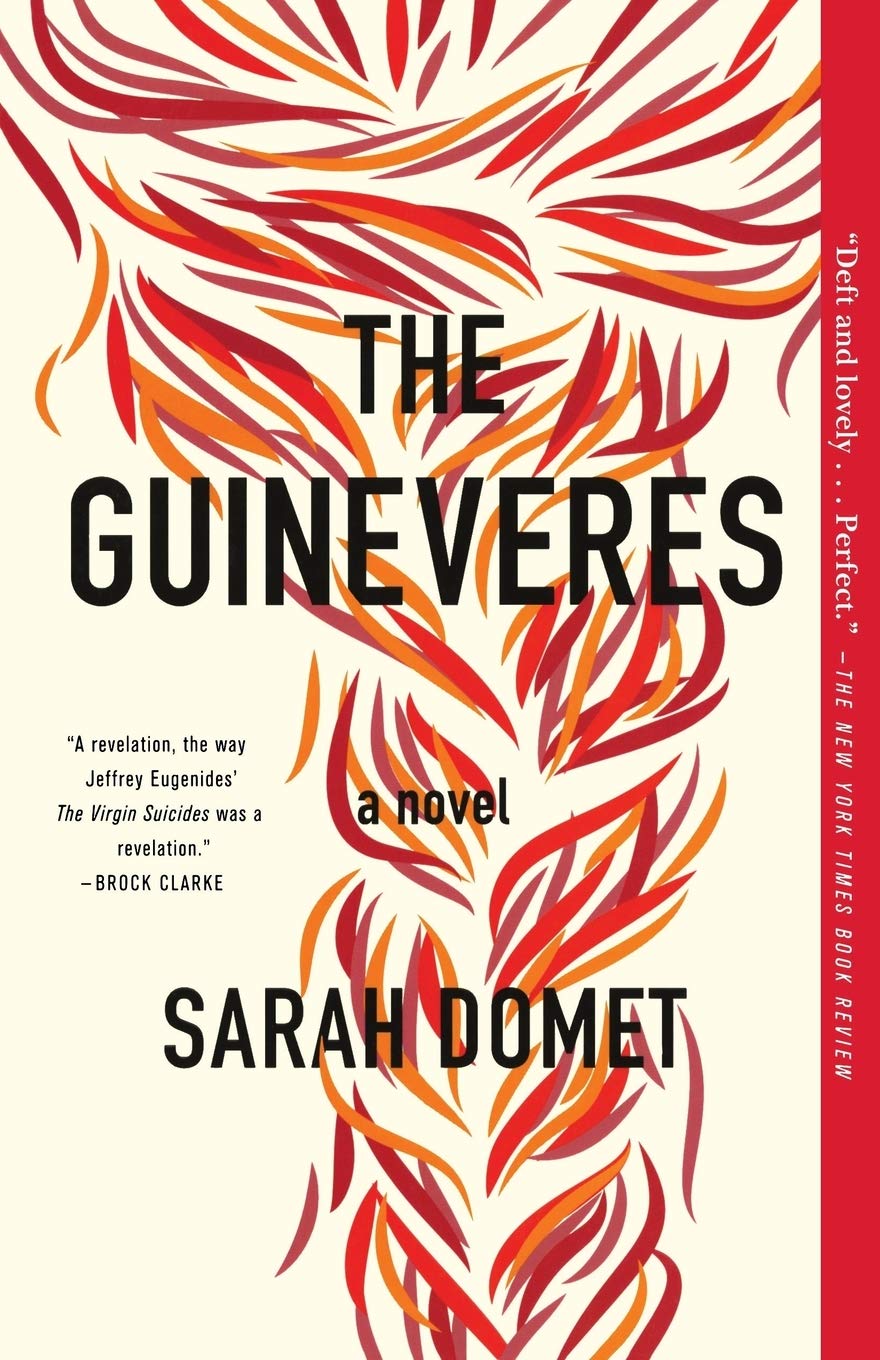Meet fiction author Sarah Domet!
 Sarah Domet is the author of The Guineveres, originally released from Flatiron Books/Macmillan in October 2016. It received starred reviews from Booklist and Library Journal along with praise from O Magazine, People, Elle, Real Simple, Harper’s Bazaar, and The New York Times Book Review. Southern Living voted it one of the Best Books of 2016 by Southern Authors and Bustle included it on their list of 2016’s best debut novels. Sarah is also the author of 90 Days to Your Novel, and her short fiction and nonfiction have been published and anthologized in numerous places. Sarah holds a Ph.D. in literature and creative writing from The University of Cincinnati, and she currently teaches in the creative writing program at Ball State University.
Sarah Domet is the author of The Guineveres, originally released from Flatiron Books/Macmillan in October 2016. It received starred reviews from Booklist and Library Journal along with praise from O Magazine, People, Elle, Real Simple, Harper’s Bazaar, and The New York Times Book Review. Southern Living voted it one of the Best Books of 2016 by Southern Authors and Bustle included it on their list of 2016’s best debut novels. Sarah is also the author of 90 Days to Your Novel, and her short fiction and nonfiction have been published and anthologized in numerous places. Sarah holds a Ph.D. in literature and creative writing from The University of Cincinnati, and she currently teaches in the creative writing program at Ball State University.
Sarah’s MWW20 sessions include:
- 90 Days to Your Novel Challenge – A line has been drawn in the sand. Come prepared to cross it and to accept the 90 Days to Your Novel challenge. This session will help you arm yourself with a deadline, some good writing habits, and an outline in order to imagine, structure, and complete a draft of a novel in 90 days.
- You Finished Your Manuscript, Now What? – Completing your manuscript is only half of your job as a novelist. This session will address the necessary next steps toward publishing and promoting your work.
- Character + Yearning = Plot – This session will explore how understanding your character–and your character’s yearning–serves as the crucial foundation for the plot of your novel.
- Panel: Outliner or Pantser? [Tracy Clark, Sarah Domet, Sarah Aronson, Moderator: Angela Jackson-Brown]
Angela Jackson-Brown, Midwest Writers Workshop board member, interviewed Sarah for this faculty Q&A.
MWW: Often times writers have a “do as I say, not as I do” approach to writing. What is some advice that you give to your students, that you wish you did more of in your own writing?
SD: I always tell students to let go of perfectionism in the first draft of anything–just write and have fun with it. Enjoy the process. Revel in the pure joy of language. Follow the energy of the story to unexpected places. Whatever you do: keep writing. The sentences and pages will add up. I do feel I could follow this advice a bit more. On occasion, I find myself reworking the same paragraph/page/scene over and over again, and usually this is a sign that I’m stuck. I’m a big believer in the idea that the first draft of anything is simply a process of trying to figure out how to tell a story.
 MWW: In your novel The Guineveres, you have four characters who share the same name. How easy or difficult was it developing their individual voices? What are the techniques/strategies you used to make sure each character resonated off the page?
MWW: In your novel The Guineveres, you have four characters who share the same name. How easy or difficult was it developing their individual voices? What are the techniques/strategies you used to make sure each character resonated off the page?
SD: Voice is everything in fiction. I always tell my students that once you find your voice, you find your story. Part of narrative voice is discovering who is telling the story, of course. But perhaps equally important is figuring out who the imagined listener of your story might be. In The Guineveres, the turning point for me was figuring out just who was listening. Why were these girls telling this story in the first place? In the end, the answer surprised me!
In general, I find it useful for writers to think about this question: Why do I want to tell this story? If you can answer this question clearly, then you can often tap into your characters–and their motives–in more authentic ways.
MWW: What are the main takeaways you want conference attendees to walk away with after taking your workshop?
SD: I hope attendees walk away with confidence in their voices and with concrete plans for finishing, revising, or submitting their work.




